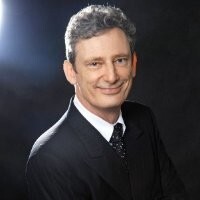Dr. Relly Nadler: We are really, really excited to have Joseph O’Connor with us. We will bring him on in just a moment but let me tell you a little bit about Joseph. I’m excited to hear more from him.
He’s an author. He’s an international executive coach. I think he’s talking to us today from Great Britain, but we will see. He’s a coach and a trainer.
He’s also the founder of the Neuroscience Coaching Center. He is an advocate and a coach around neuroscience, which is obviously a topic that I’m interested in, and so is Cathy; we all are.
What can we do, knowing more about our brain?
He’s also the co-founder of the International Coaching Community. He’s one of the best-known and respected coaches and coach trainers in the world.
He has an interesting background. He was a professional musician and it was clear that success was much more than just being good at what you do, you had to give your best at the right moment.
So, this idea of emotional brilliance; my son is a musician, you can’t make a mistake. One mistake in the moment can throw you off, it can throw anybody you play with off. We will tap into that here, Joseph’s experience of that.
He is the author of nineteen books in thirty languages, on coaching, training, and neuroscience. And sold half a million copies worldwide.
We really have quite an expert here. He follows his two great interests, giving coaching training and courses on creative non-fiction writing.
So, beyond his writing and coaching, Joseph enjoys enlightening audiences with fascinating insights about how our brains actually work as opposed to how we hope they do.
Joseph, welcome. We are looking for some of those insights today, so, thanks so much for being a part of our Leadership Development News.
 Joseph O’Connor: Thank you, Relly. It’s great to be here. I guess you are phoning from a sunny morning there on the west coast.
Joseph O’Connor: Thank you, Relly. It’s great to be here. I guess you are phoning from a sunny morning there on the west coast.
Dr. Relly Nadler: Yeah. Where are you from? Tell us what it’s like now where you are.
Joseph O’Connor: We are in a chilly, dark evening, just outside London in the UK.
Dr. Relly Nadler: Okay, great.
Joseph O’Connor: Give us some sunshine and I’ll give you some…
Dr. Relly Nadler: Yeah, I’ll try to do it with a little smile on my face. Maybe you’ll hear it or feel it through the lines here. Thanks so much for being a part of this.
We always start by getting a little bit of background into what makes you, you. What have been some of your most important influences and influencers in your life?
Joseph O’Connor: Oh. Well, quite a few. I guess the first one would be my father, certainly. My father was an actor. He did lots of TV, film, and stage work as well. He brought me up in an environment where there were always interesting people who were performing, as it were, in public and were sometimes larger than life. He also wrote books, so it was quite normal to have a lot of books around the house and quite normal to write books, as it were, in my childhood.
He was also a guitarist. He played guitar, he taught me first the guitar. So, I guess that certainly made a difference at the beginning.
Dr. Relly Nadler: Yeah, yeah. That’s huge. I mentioned my son is a jazz guitarist. I usually tell the story of when he was eleven, we took him to his first lesson. He and I started together. The instructor/teacher basically said you’ve got to practice fifteen minutes every day.
So, I was good for about a month and then he kept going. So, I was part of his ground crew probably like your dad with you but then he took off. He flew, and I stayed grounded. So, I’m still grounded.
Joseph O’Connor: Hahaha, good. Yeah, that’s great.
Dr. Relly Nadler: Have you played professionally?
Joseph O’Connor: Uh, played guitar? Yeah, sure. I was a professional classical guitarist for many years.
Dr. Relly Nadler: Oh.
Joseph O’Connor: It was great. First of all, because it taught me to – there are two aspects to it, right? There is the actual skill that you have and build up by practice but then if you are going to make a living out of it, you’ve got to have those performance skills as well. In other words, you’ve got to be able to produce those skills at the right time.
Most people can play a reasonable riff in the privacy of their own bedroom but to play it with a hundred or several hundred people in front of you all listening in dead silence when it’s a classical piece of music and there is only one right note at any one time, then this puts a considerable amount of pressure that’s quite different.
I taught a lot as well and I taught some very good players. I was used to getting them into the studio, they’d take you the guitar. I’d ask them to practice a little. I’d go off and get us some coffee or get us some water or something. I always would listen at the door while they played alone.
They would play beautifully and then that gave me what they were capable of, as it were. Because the moment I walked into the room as the teacher and said let’s start – let’s play. Invariably, they were nowhere near as good because of that kind of internal pressure. That kind of inner game that we put ourselves into.
That was always very interesting. I always recognized that the better the player in terms of skill, the more I had to put into the mind game as it were. The inner game of performance as opposed to the skills. Because, in the time that I walked into the room and they started playing, they had exactly the same skill, they just couldn’t use it.
Dr. Relly Nadler: This is beautiful. We can pick at this a little bit and then we can also get into the questions that we have for you.
Joseph O’Connor: Yeah.
Dr. Relly Nadler: This idea that we talk about, Cathy and I, emotional brilliance – it’s kind of a takeoff from emotional intelligence. In the moment, to perform – you said it beautifully – every note has to be right. So, what were some of the mental skills as a performer, and I’m sure that will relate to you and I talk to when we talk about performers being leaders, what did you do to prepare yourself to step into that stage? Any kind of rituals, or routines that I’m sure transfer to the people that we are coaching?
Joseph O’Connor: I had several. I think the first one is you’ve got to do your work. You’ve got to do your practice. The whole point of any technical skill, whether it’s public speaking or playing guitar or whatever you like, the whole point of practice is to be able to do that skill without having to think about it.
You can listen to the entire interview above by clicking on the play button.

